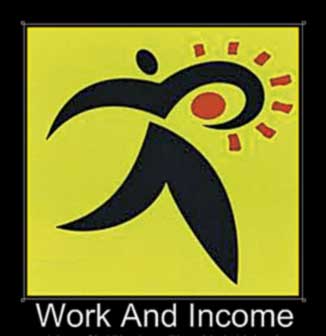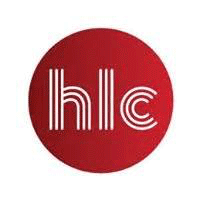 For the first time WINZ have contracted to have the Moving Forward course in Otaki. The course is for those of us who have been out of work for some time, and aims to build confidence, explore the work possibilities, look at what we have to offer, what stands in the way and what can be done to overcome barriers to work. Up to now these courses were only run in Levin and Paraparaumu, which made them inaccessible to Otaki people.
For the first time WINZ have contracted to have the Moving Forward course in Otaki. The course is for those of us who have been out of work for some time, and aims to build confidence, explore the work possibilities, look at what we have to offer, what stands in the way and what can be done to overcome barriers to work. Up to now these courses were only run in Levin and Paraparaumu, which made them inaccessible to Otaki people.
About 20 people gathered at the Rotary Hall on day one of this three week course, mostly strangers to each other.
We were a very diverse bunch, and not all that young: several grandmothers, mothers, fathers; people raising children; single people mostly; some people living alone, and just one person young enough to feel really different. Some of us had quite lot of work experience, some had completed some training, some were recovering from injuries or had other health challenges. Some were uncertain what skills they have to offer an employer, others really keen to move into particular kinds of work.
Other than our course tutor, starting out in the role for the first time, hardly anyone wanted to be there, having little hope that the course would help them find work within Otaki. After all, if the work isn’t there, it isn’t there.
After a welcome and introduction from Kuini Rikihana, our tutor took the lead, and ten points for her, facing a room full of people showing all sorts of reluctance and anxiety.
What did we expect to get from the course? Umm. Not a lot. Maybe finding out about jobs in Otaki (wistful laughter). Making a CV. Finding out what kind of training was available. Literacy training. Keeping our WINZ case managers happy. Having a holiday from the job search. Being bored for 3 weeks.
We started on our thick work book. Listing skills and experiences. Ticking lists, turning pages, getting to know the people sitting alongside, doodling on the cover, finding typos (some of us really enjoyed that). We had front-row people and back-row people, first-to-respond people, never-say-a-word people, passing-notes people, diligent people, helpful people, quick people and distracting people. We had to be here, there was a programme to follow, we didn’t want to be rude to the tutor, we got on with it.
Later in the morning we set aside our workbooks, and got to introduce ourselves to each other. One of our number got us all to stand in a circle and say who we were. We weren’t all keen on this, but we did it. Names, faces, a bit of who we were. Then we were invited to talk about our experiences in the community: groups we belonged to, community services we had offered at different times in our lives.
And what a revelation that was, on many different levels. For a start there are lots of things happening in Otaki that we did not all know about. And secondly we found out that between family and community we were all living active, positive, interesting, and varied lives, even though we did not “have work”.
“What did you expect?” you might ask. Well, hindsight is a wonderful thing, and at some level it is, indeed, obvious. But we were a group of “unemployed” people. “On the dole” people. “Living on handouts” people. “Beneficiaries” — people regularly lambasted by both the government and the media as “couldn’t” or “wouldn’t” get or keep work. The labels and judgements take their toll — and were at the heart of why we were gathered together on this course for three weeks.
It is not often people are asked to outline the interesting and positive things they do in their lives — family, friends and colleagues already know, they are living it, so it is not often talked about, said out loud. But in this place amongst mostly strangers, grouped together because of our lack of “work”, we said it out loud.
As we talked about the ways in which we do and are contributing positively to our families and the community the feeling in the room changed. We relaxed. We sat differently, talked differently, held our heads a little differently, smiled more freely and more often. We felt better about ourselves (I did, anyway and it seemed others did too), became interested in each other, and what they have done or are doing. It was a breath of fresh and invigorating air. It is hard to find the right words, but I think that we actually began to feel like “real” people again.
Work and what you do are such central measures of personal value in New Zealand society, at least the Pakeha side of it — the lack of a recognised work position is profoundly undermining. People who retire can face the same, largely unconscious pressures, both from within and from others. “What do you do?” becomes “What did you do?”. Voluntary work can play its part in ameliorating this problem — Otaki has a wide range of community initiatives that depend on people who are not in full-time work.
Recently the government changed the rules to limit Job Seekers from doing voluntary work. Job Seekers (those receiving what we usually call the unemployment benefit, now called Job Seeker Support) can only do voluntary work with the specific permission of their case manager, only for limited periods of time, and only aimed at specific skill training. Job seekers are expected to spend 30–40 hours a week looking for work. One assumes (with a bit of a question mark) that the government has no right to prevent anyone from doing voluntary work outside of those times, job seeker or not.
Day 2 we had a library visit. I wasn’t keen (‘I already know the library’, I thought), and lagged behind a bit. I caught up with the group at the jigsaw loan shelf (who knew?) then computers for genealogy research (their group will help you use them). I lost the group again, distracted by the large print books. Catching up I passed one of our number snagged on the magazine collection, another looking up rellies in the Historical Journal, another in the Maori section. The library is getting a desktop publishing programme people can use — one of our number has been keen to learn that skill for a while now. There are desks down the back you can plug a laptop in. Nothing “ho hum” about this library visit after all. Another day we visited Nga Purapura, learned the history of the university and the gym. The gym is too expensive for beneficiaries, even thought it is very well priced, but you never know, they might start something that makes it accessible to us too.
We began to look forward to each day — to get there early enough for a catch-up before we started, to share the lunch break together in the sun. We could share notes on managing on such low income, the tribulation of dental visits that can’t be afforded, essential vehicles that can’t be fixed this week or next, children needing extra money for school projects, clothes, or shoes.
In our learning time we compared notes about what is available in Otaki, Levin, Waikanae and Paraparaumu. Talked about transport, timetables, the cost of working. There’s a workers bus to and from Levin (did you know?), which is great if the job fits with its early start, early finish timetable. Public transport is so poor in Otaki that if you don’t have access to a vehicle you can only look at jobs that match the bus or train timetables. We talked about part-time work, about Inland Revenue, who claim secondary tax (70c in the $1) on any employment by a beneficiary. About shift work, multiple part-time jobs, student loan repayments. We looked at all the kinds of training that are available and what kinds of work that might open up for us. We heard how WINZ can assist with job interviews, and starting a new job.
In the latter part of the course we got down to the nitty gritty of writing a CV, and that was challenging with only the tutor’s personal laptop to use. Rotary Hall was not an ideal venue for this course, as it has no internet access or computers, but it was both handy and comfortable. Future courses on Otaki will hopefully address the computer/internet issue.
Our last day we had a graduation ceremony, Kuini rejoined us for this, and the HLC manager came too. We got a certificate, a handshake and individually acknowledged for our time on the course. It was good way to finish — taking time to celebrate each one of us. Then a shared lunch, and it was sad to say goodbye to each other and to our tutor who had shepherded us with such care and success through our three weeks.
 The Moving Forward course is run by HLC, a private training establishment mainly for people who are unemployed with bases in Levin, Kapiti and Lower Hutt. It also provides some one-to-one support to help people into work, work placement training and does some work brokering.
The Moving Forward course is run by HLC, a private training establishment mainly for people who are unemployed with bases in Levin, Kapiti and Lower Hutt. It also provides some one-to-one support to help people into work, work placement training and does some work brokering.
The author’s request for anonymity is accepted.

